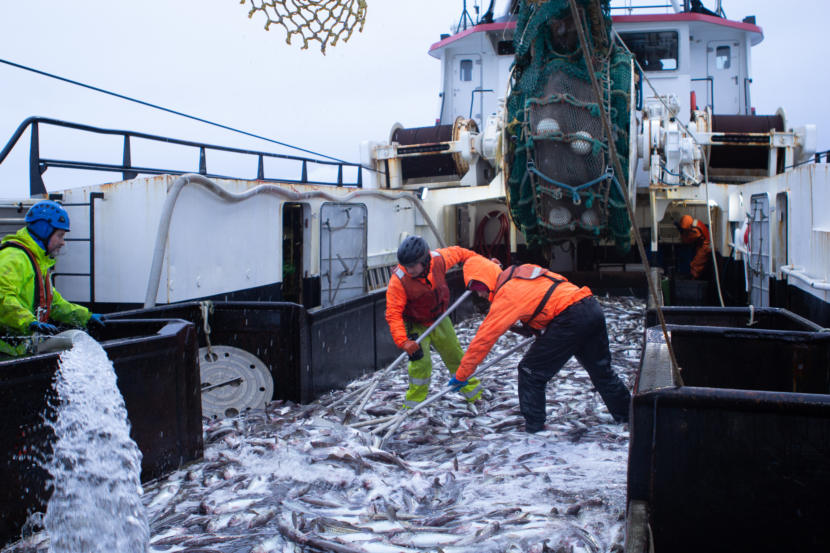
President Joe Biden signed an import ban on Russian seafood last year, but fish valued at several hundred millions of dollars are able to evade the ban by diverting to another another country before arriving on American shores.
“There has been a huge loophole where the Russians have been now sending their fish – it’s pollock, it’s salmon, a little bit less crab – to other countries for reprocessing, primarily China,” U.S. Sen. Dan Sullivan told reporters Thursday.
The ban was intended to ensure Americans aren’t indirectly financing Russia’s war on Ukraine through their purchases.
The problem is that the United States doesn’t require that seafood imports be traced to their country of origin.
Last year, the U.S. imported more than $300 million worth of salmon and pollock from China. Some of it was caught in the U.S. and sent to China for processing but a majority is likely to be from Russia, according to an International Trade Commission report.
Sullivan said he’s talking to officials in the Biden administration about closing the loophole and is also sponsoring legislation, as he did last year.
“Bottom line, what this does is it bans all Russian-origin fish, wherever it goes to be reprocessed – again, primarily, China,” Sullivan said. “We think this is a really big deal for our country, to nail the Russians as they’re trying to evade sanctions after the brutal invasion of Ukraine.”
Environmental groups and the American pollock industry are among those calling for the loophole to be closed. But U.S. companies that process and sell imported fish oppose bans that decimate their supply.
Liz Ruskin is the Washington, D.C., correspondent at Alaska Public Media. Reach her at lruskin@alaskapublic.org. Read more about Liz here.





